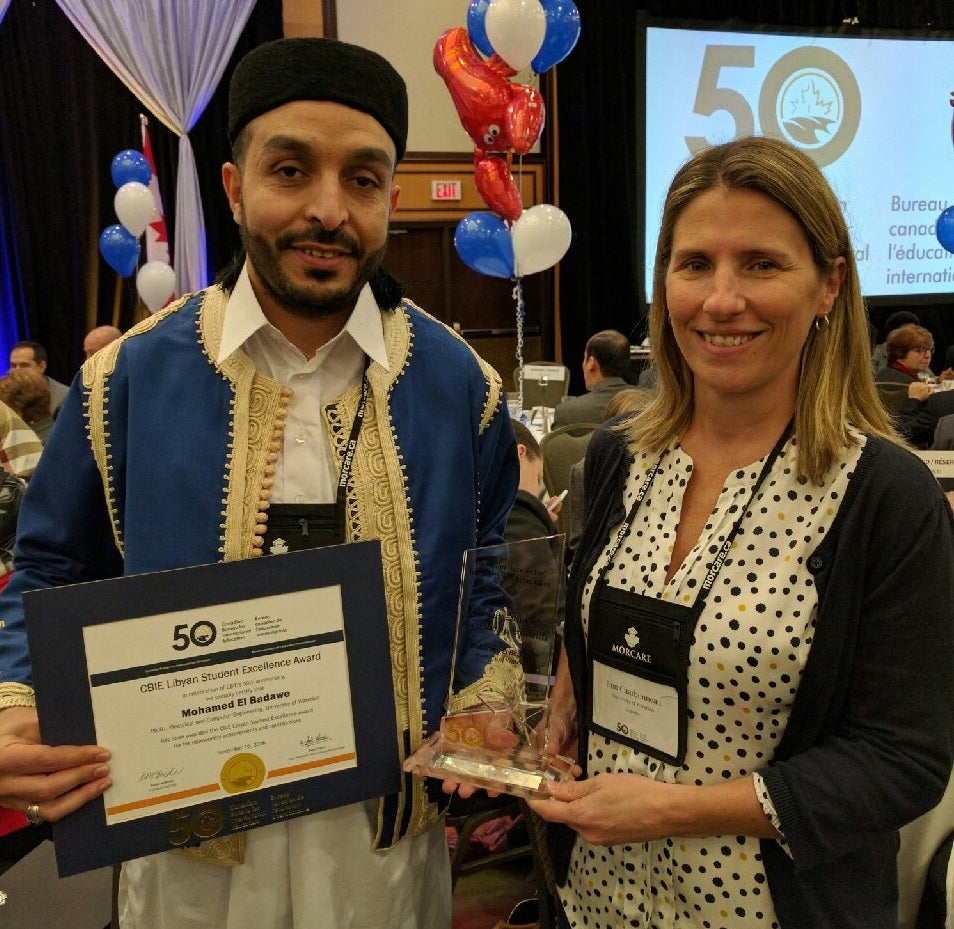A graduate student from Libya was recognized by a national organization this week for his academic achievements at Waterloo Engineering and volunteer work in the broader community.
Mohamed El Badawe, an electrical and computer engineering PhD candidate, was one of four students honoured at a ceremony in Ottawa with a Libyan Student Excellence Award worth $2,000.
Sponsored by the Canadian Bureau for International Education, a not-for-profit, non-governmental group, the awards recognized academic performance as well as extracurricular contributions, with winners attending universities in both Canada and the U.S.

Mohamed El Badawe poses with his award in Ottawa this week with Pam Charbonneau, director of the Student Success Office at the University of Waterloo.
El Badawe has focused his research on helping communities better utilize their resources and developing a renewable energy source to reduce Libya’s dependence on fossil fuels.
He holds a patent for an antenna used to harness energy from the electromagnetic spectrum, including the sun. It has been designed, fabricated and tested, with the results published in highly ranked journals and presented at several conferences.
El Badawe is president of an association of electrical and computer engineering graduate students, one of several positions he has held on campus. He also worked to welcome Syrian refugees to Waterloo, including the organization of activities for children.